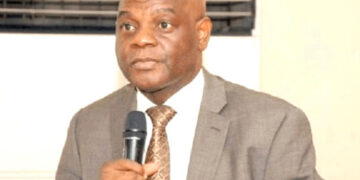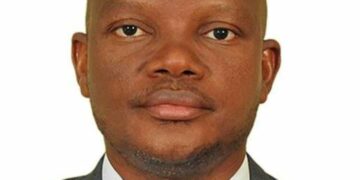The Federal Government College Kaduna Old Students Association (FGCKADOSA), Abuja chapter, in collaboration with Cancer Consciousness Initiative (CCI) and Federal Medical Centre, Abuja have raised awareness on the importance of regular cancer screening.
During a cancer awareness campaign and screening event in Abuja, they educated the public about preventive measures, the benefits of early diagnosis, and available screening options to improve survival rates.
Speaking at the event, Hon. Bola Abduroshakin, chairman of the chapter, said health is paramount, which is why the association is working to raise awareness.
“It is as important as life because when you are not healthy, you are as good as dead. It is very important for us to have that health consciousness, especially in this season of cancer awareness, to educate our friends, families, and ourselves on the need to be conscious of our health conditions as related to cancer prevention. We shouldn’t leave all of this to the government; we first have to take care of ourselves.”
He expressed hope that the initiative would extend to other chapters with support from the global chapter. “I believe they will support me in spreading it to all our chapters. We have chapters in all 36 states of this nation, and we’re also present internationally in North America, the UK, and Canada.
“Previously, we introduced a health insurance initiative for all alumni of Federal Government College Kaduna. Around a hundred of our members are enjoying free medical coverage, fully funded by alumni contributions,” he added.
In his keynote speech, Dr. Adamu Alhassan Umar, president of the Nigerian Cancer Society, said cancer is a significant challenge in Nigeria that needs to be addressed.
Represented by Dr. Ayuba Hannatu Usman, Umar urged Nigerians to be aware of cancer but clarified that it is not the death sentence many perceive it to be.
In her presentation, Dr. Usman emphasized that early detection through routine screenings can significantly improve treatment outcomes and reduce mortality rates for these cancers, which are among the most common affecting women globally.
According to her, breast cancer can affect anyone, and early detection is key to better outcomes. She noted that advances in screening and management have improved outcomes.
Also speaking, Dr. Kwapmi Nicolas, Senior Registrar of Histopathology at National Hospital Abuja, spoke on cervical cancer screening, noting that all sexually active women are at risk of cervical cancer.
He identified the risk factors as early sexual activity, multiple sexual partners or high-risk partners, lack of regular screenings, under-screening in areas with established cervical screening programs, a male partner with multiple sexual partners, and exposure to oral contraceptives, among others.
According to him, in its early stages, cervical cancer is often asymptomatic and might only be diagnosed following routine screenings, pelvic examinations, or symptoms like foul-smelling vaginal discharge.
Earlier, the Medical Director of FMC, Dr. Sa’ad Ahmad, expressed appreciation to the association for choosing the hospital for the program and for lending a helping hand to those affected by cancer.




